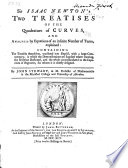 | Isaac Newton - Calculus - 1745 - 524 pages
...laft is the Logarithm of the compounded Ratio, and the reft eafily follows. Whence it follows that the Sum of the Logarithms of two Numbers is equal to the Logarithm of their Product, and the Difference of the Logarithms of two Numbers is the Logarithm of their Quotient, Gfc. For what... | |
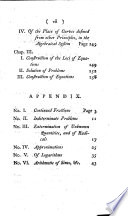 | William Trail - Algebra - 1796 - 334 pages
...logarithms of • b and f, is therefore, by the definition, the logarithm of 4f- ,' , 4. The difference of the logarithms of two numbers is equal to the logarithm of their quotient For, if am-='b, and a"=c, f_=— , that is, am— "—— • m — n^ or the a" cc difference... | |
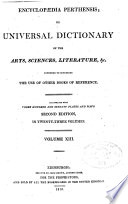 | Encyclopedias and dictionaries - 1816 - 746 pages
...io = log. i'7i8»8i8, § 41 : Hence log, io XA = . XA is the logarithm of-; that is, the difference of the logarithms of two numbers is equal to the logarithm of their quotient. If we refume the equation r * =sa,vre have 1 A ' } I r —a*, therefore n A is the logarithm... | |
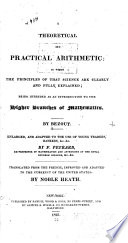 | Bézout - Arithmetic - 1825 - 258 pages
...index of the logarithm of a number shows in what decade this number is comprised, number 222. 91. The sum of the logarithms of two numbers is equal to the logarithm of their product, number 227. 92. The logarithm of any power of a number is equal to the logarithm of that number, multiplied... | |
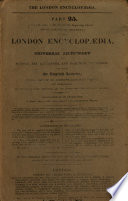 | Thomas Curtis (of Grove house sch, Islington) - 412 pages
...to that logarithm which is the sum of the logarithms of ihe numbers. Again, because the difference of the logarithms of two numbers is equal to the logarithm of tlie quotient arising from the division of the one number by the other, § 4, that quotient will be... | |
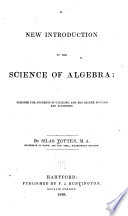 | Silas Totten - Algebra - 1836 - 320 pages
...exponent x from x, we have, а'-" =У or1.yl.y' =1Д; У У from which we see, that the difference of the logarithms of two numbers, is equal to the logarithm of their quotient. Hence, division is performed in logarithms by subtracting the logarithm of the divisor from... | |
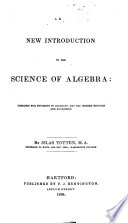 | Silas Totten - Algebra - 1836 - 360 pages
...these equations together, we have, a+" = yy', or \.y + \.y' = \.yy ; which show?, that the sum r,f the logarithms of two numbers is equal to the logarithm of their product. Hence, to multiply i,y logarithms!, we are to add together the logarithms of two factors, and find... | |
 | Silas Totten - Algebra - 1836 - 332 pages
...x from x, we have, a*-" = ^, or\.y —\.y' = l.£ ; y , . y from which we see, that the difference of the logarithms of two numbers, is equal to the logarithm of thoir quotient. Hence, division is performed in logarithms by subtracting the logarithm of the divisor... | |
 | William Ritchie - Calculus - 1836 - 198 pages
...n', then ax xa*'= nri ; that is, a*"' * = nn', or x + 3l is the log. of » x n'. (4.) The difference of the logarithms of two numbers is equal to the logarithm of the quotient of these numbers. x x' xx' n Thus, a -7- a , or a =— ; that is, x — sd is the logarithm... | |
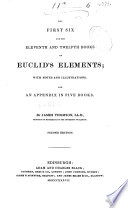 | Euclid, James Thomson - Geometry - 1837 - 410 pages
...their logarithms, which are called logarithmic sines, tangents, &c.* By the nature of logarithms, the sum of the logarithms of two numbers is equal to the logarithm of their product; and, conversely, if the logarithm of one number be taken from the logarithm of another, the remainder... | |
| |